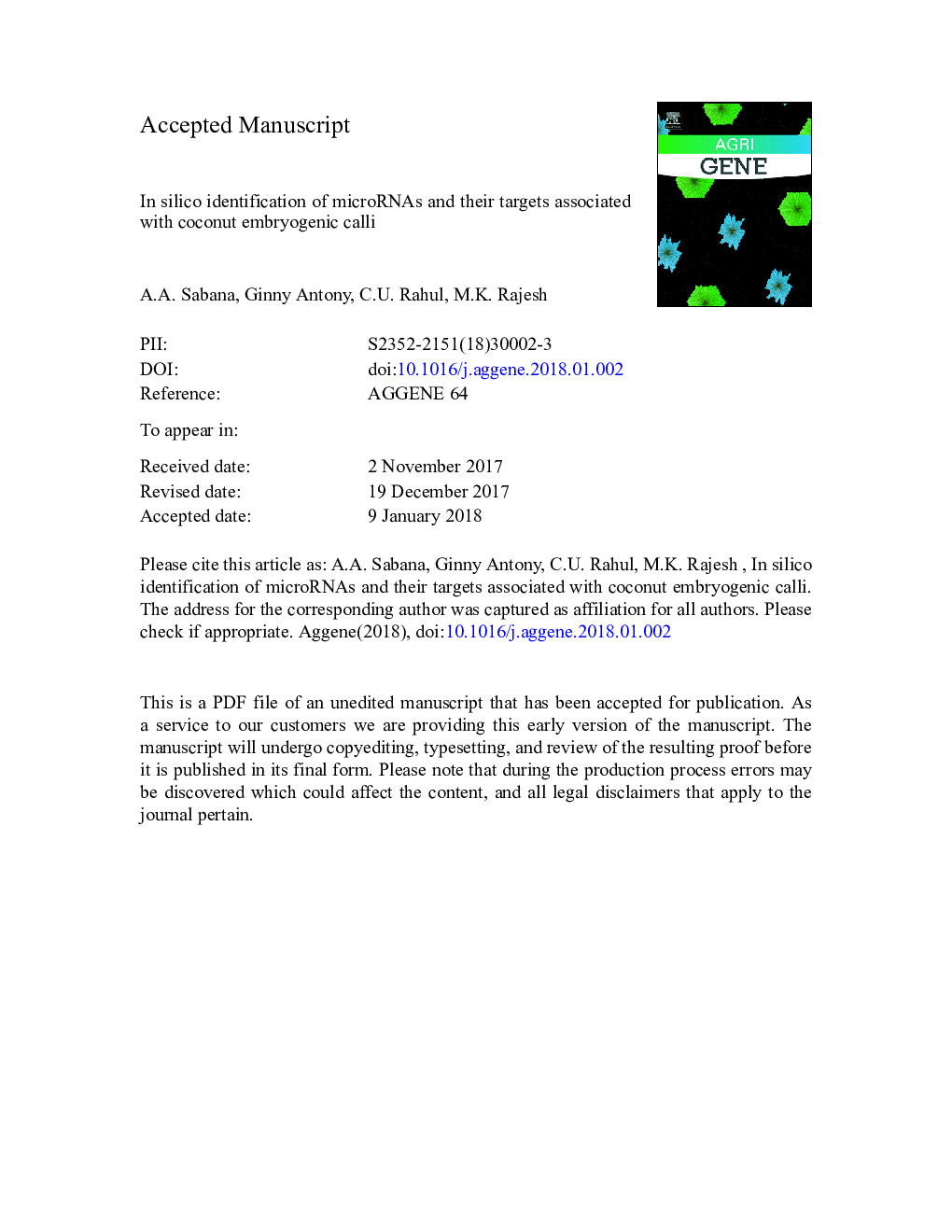| Article ID | Journal | Published Year | Pages | File Type |
|---|---|---|---|---|
| 8634944 | Agri Gene | 2018 | 30 Pages |
Abstract
Coconut palms are propagated mainly through nuts, which does not meet the requirement of quality planting materials for large scale planting. In vitro propagation to enhance production of high yielding, disease-free planting material in coconut has remained a distant reality because of its in vitro recalcitrance. MicroRNAs (miRNAs) have been implicated in the regulation of a plethora of cellular, physiological and developmental processes which include developmental regulation, hormone response and adaptation to stresses. In this study, computational methods were utilized to identify conserved miRNA from transcriptome data of coconut embryogenic calli. A total of 117,790 unigenes from coconut embryogenic calli were compared against monocot mature miRNA sequences. A total of 27 mature miRNA sequences, belonging to 15 miRNA families, viz. miR156, miR164, miR166, miR167, miR169, miR171, miR172, miR394, miR397, miR408, miR444, miR535, miR827, miR1134 and miR2118, were identified. Many of these have well defined and crucial roles in developmental pathways and hormone signalling in other plant species. Each of the identified miRNA had its own predicted targets. This is the first in silico study describing miRNAs and their role in the regulation of in vitro embryogenesis in coconut. The results obtained in this study would provide a base for future studies to address molecular mechanisms that govern in vitro recalcitrance in coconut and the role of miRNAs in the process.
Keywords
Related Topics
Life Sciences
Agricultural and Biological Sciences
Animal Science and Zoology
Authors
A.A. Sabana, Ginny Antony, C.U. Rahul, M.K. Rajesh,
